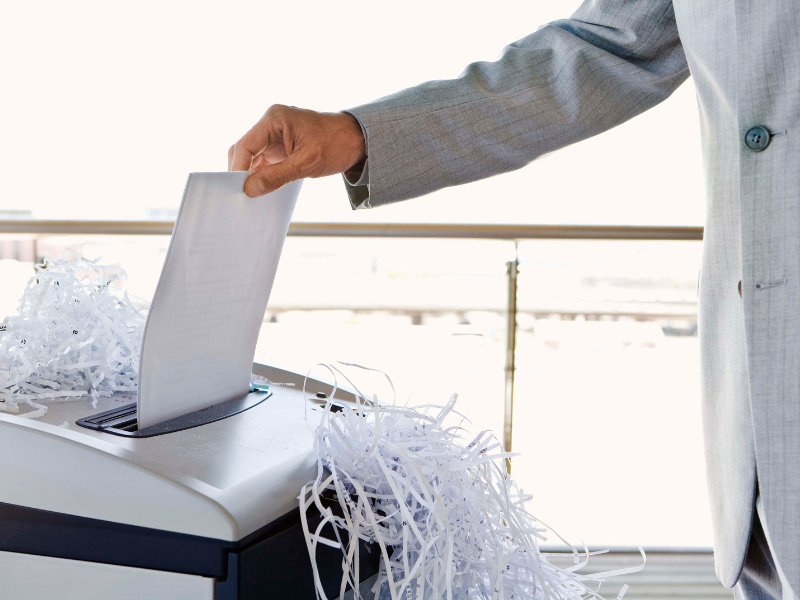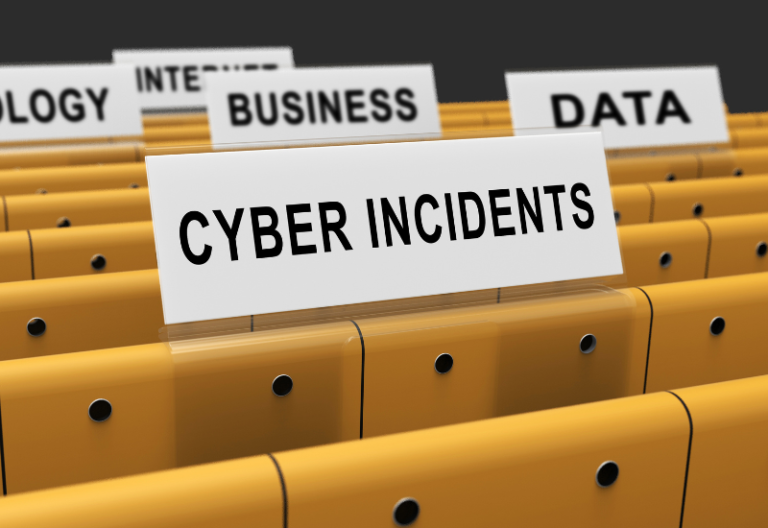The secure disposal of medical records is critical for ensuring compliance and patient privacy. Failure to follow appropriate document handling and disposal practices can result in severe consequences, including loss of integrity and costly HIPAA violations.
Suppose you wish to know how to dispose of HIPAA documents properly. In that case, you must learn the guidelines imposed by the Health Insurance Portability and Accountability Act (HIPAA) and follow the best practices for proper document disposal.
Table of Contents

The Importance of Properly Disposing of HIPAA Documents
Patient privacy and the security of protected health information (PHI) are top concerns in the healthcare industry. Discarded documents that aren’t disposed of securely are vulnerable to unauthorized access, potentially leading to identity theft, fraud, or other privacy breaches.
Moreover, healthcare providers involved in a data breach can face severe consequences. The U.S. Department of Health and Human Services (HHS) takes patient privacy seriously. Healthcare providers have paid huge fines and suffered reputational damage because of non-compliant practices.
The Role of HIPAA in Document Disposal
The HIPAA law for the disposal of health information sets standards for how an organization should discard sensitive medical records. While the said U.S. federal law hasn’t prescribed any specific methods for document disposal, it requires covered entities to implement policies and appropriate safeguard procedures, including PHI disposal practices, to prevent unauthorized recovery and access.
Why proper disposal is crucial for HIPAA compliance
The HHS requires covered entities and their business associates to comply with the HIPAA Privacy and Security Rule regarding document disposal. Failure to do so can subject them to legal penalties and costly monetary fines. It is also a way for organizations to demonstrate their ability and commitment to comply with patient privacy regulations by ensuring the proper disposal of sensitive medical records.
HIPAA Privacy Rule for document disposal
Under the HIPAA Privacy Rule, covered entities must know how to dispose of old medical records and apply policies for the appropriate disposal of PHI. While the rule does not specify particular disposal methods, covered entities must ensure that the chosen method reasonably protects against unauthorized uses and disclosures of PHI and safeguards against reasonably anticipated threats or hazards to the security of electronic PHI.
HIPAA Security Rule and document disposal
The HIPAA Security Rule complements the Privacy Rule by requiring covered entities to implement specific security measures for electronic PHI and the disposal of medical records. When disposing of electronic PHI, covered entities must ensure that appropriate safeguards are in place to prevent unauthorized access or breaches. This may include securely deleting electronic files or using encryption techniques to render the data unreadable. Proper record retention and data retention policies also contribute to ensuring that sensitive information is managed appropriately throughout its lifecycle, including its eventual document destruction in compliance with the law.
Best Practices for Disposing of HIPAA Documents

6 Methods of secure document disposal
Covered entities should know how to dispose of HIPAA documents using the following secure methods:
- Shredding – using a shredder machine to cut printed copies into small, confetti-like pieces. Cross-cut or micro-cut shredders provide higher levels of security compared to strip-cut shredders.
- Pulping – blending paper documents into a pulp-like substance, making it impossible to reconstruct the original information. Pulping is often used for large-scale document destruction.
- Incineration – subjecting documents to high-temperature burning. Incineration reduces documents to ashes, ensuring destruction. Professional incineration services are available for secure disposal.
- Disintegration – breaking down paper documents into tiny particles using specialized machines. Disintegration provides a high level of security as the particles are difficult to reconstruct.
- Secure Recycling – documents are recycled using specialized processes that ensure the destruction of sensitive information. Paper documents are pulped or transformed into new paper products without compromising the security of the information.
- Digital Destruction – For electronic health records (e.g., prescriptions faxed online) and storage media, digital destruction methods are employed. This includes overwriting data, degaussing, or physically destroying hard drives or other storage devices. Properly adhering to retention requirements and secure disposal methods is essential for maintaining patient privacy and complying with HIPAA regulations.

Incorporating a Document Disposal Policy
Covered entities should develop a document disposal policy that outlines procedures for secure disposal and ensures compliance with HIPAA regulations. This policy should be communicated to all employees and workforce members who handle PHI. It should also include HIPAA training on proper disposal practices.
Case studies of HIPAA violations related to document disposal
These cases serve as reminders of the importance of safe disposal practices:
- On July 2010, Reuters reported that Rite Aid Corporation and its affiliated entities agreed to pay $ 1 million to settle potential violations of the HIPAA Privacy Rule and the Federal Trade Commission (FTC) Act. The settlement follows an investigation that revealed improper disposal of prescription information and pill bottle labels containing identifiable information in publicly accessible trash containers, putting individuals’ privacy at risk.
- On April 2015, the HIPAA Journal reported that Cornell Pharmacy (a small, single-location pharmacy) settled with the OCR after potential HIPAA violations. Cornell Pharmacy was ordered to pay $125,000 and implement corrective measures after improperly disposing of unsecured documents with patients’ PHI.
- On August 2022, the Office for Civil Rights (OCR) under the HHS announced a $300,640 settlement with New England Dermatology and Laser Center (NEDLC) for a potential HIPAA Privacy Rule violation. NEDLC self-reported a breach after empty specimen containers containing patients’ PHI were thrown in the garbage cans in their parking lot. NEDLC was also required to go through a robust corrective action plan that includes two years of monitoring.
Avoiding violations and penalties
The consequences of non-compliance with HIPAA are costly and damaging. Before this happens, consider looking into secure yet cost-efficient solutions for PHI document disposal. Implement secure disposal methods, develop comprehensive document disposal policies, provide HIPAA training to employees, and regularly review and update disposal practices to align with ever-evolving privacy law requirements.
By following best practices and adhering to HIPAA regulations, covered entities can mitigate the risk of data breaches and maintain a positive reputation that instills trust and confidence.







